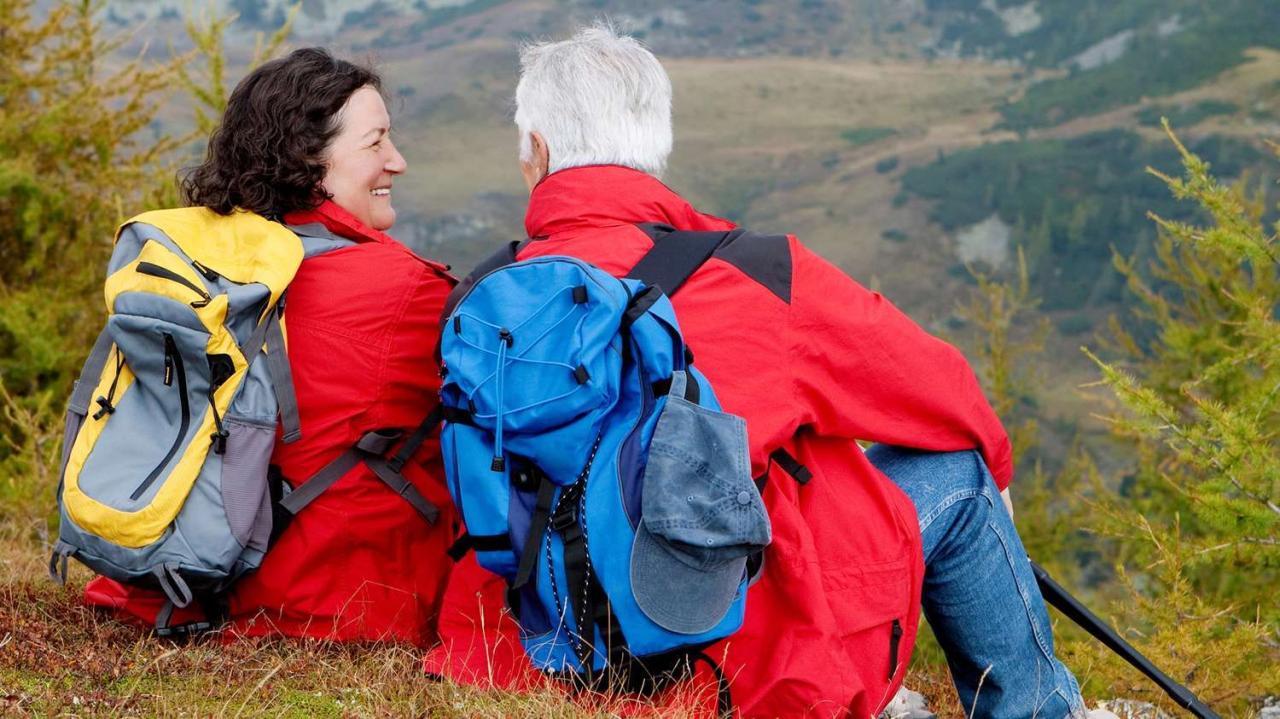Independent travel options for single seniors in Europe offer a wealth of exciting possibilities. Exploring the continent’s rich history, diverse cultures, and stunning landscapes becomes accessible and manageable with careful planning. This guide delves into the essential considerations for solo senior travelers, from choosing the right destinations and transportation to securing comfortable accommodations and engaging in enriching activities. We’ll cover practical tips on budgeting, safety, and health, ensuring a rewarding and memorable journey.
Whether you prefer bustling city breaks or tranquil countryside escapes, Europe caters to a variety of travel styles and preferences. This guide aims to empower single senior travelers to confidently plan and embark on independent adventures, fostering a sense of freedom and discovery.
Embarking on a solo European adventure as a senior offers unparalleled freedom and discovery. However, meticulous planning is key to a safe and enjoyable experience. Let’s explore the essential considerations:
Choosing the Right Time to Travel
Consider weather patterns – avoid extreme heat or cold. Research peak tourist seasons to balance the vibrant atmosphere with manageable crowds. Check for local events or festivals that might enhance your trip or necessitate advance booking.
Determining Your Budget and Travel Style
Establish a realistic budget encompassing flights, accommodation, activities, food, and transportation. Determine your preferred travel style: luxury, budget, or mid-range, and tailor your choices accordingly. A budget spreadsheet can be invaluable.
Researching Visa Requirements and Travel Insurance
Confirm visa requirements well in advance, based on your nationality and intended destinations. Comprehensive travel insurance is paramount, covering medical emergencies, trip cancellations, and lost belongings. Ensure it specifically addresses senior traveler needs.
Creating a Flexible Itinerary
Structure a flexible itinerary with a balance of planned activities and free time. Allow for spontaneity and unexpected delays. Don’t overschedule your days – prioritize rest and relaxation.
Packing Essentials for Comfort and Safety
Pack comfortable, practical clothing suitable for varying weather conditions. Include essential medications with copies of prescriptions, emergency contact information, and a basic first-aid kit. Consider a lightweight walking stick for support.

Transportation Options: Getting Around Europe Efficiently and Safely
Europe boasts excellent public transportation. Let’s weigh your options:
Choosing the Best Mode of Transportation
Trains: Scenic, comfortable, and often offer senior discounts. Buses: Budget-friendly, but can be less comfortable on longer journeys. Planes: Quick for long distances, but airport transfers can be challenging. Rental Cars: Offer flexibility, but driving in unfamiliar cities can be stressful for some seniors. Consider your comfort level and physical abilities.
Utilizing Senior Discounts and Passes
Many transportation providers offer senior discounts or passes. Research rail passes, bus passes, and city transit cards for potential savings. These often require advance purchase.
Navigating Public Transportation Systems
Familiarize yourself with local transportation schedules, ticketing systems, and accessibility features. Download relevant apps and utilize online resources to plan your routes.
Booking Transportation in Advance
Especially during peak season, book train tickets and flights well in advance to secure the best prices and availability.
Ensuring Safety While Traveling
Be aware of your surroundings, avoid walking alone at night in unfamiliar areas, and be cautious of scams. Keep valuables secure and inform someone of your travel plans.

Accommodation Choices: Finding Comfortable and Secure Lodging
Your choice of accommodation significantly impacts your comfort and safety:
Selecting Suitable Accommodation
Hotels offer various amenities, guesthouses provide a more personal experience, Airbnb offers diverse options, and hostels are budget-friendly (though less private). Prioritize accessibility features (lifts, ramps) and security measures (24-hour reception).
Utilizing Booking Platforms and Reading Reviews
Utilize reputable booking platforms like Booking.com or Expedia. Read reviews carefully, paying attention to comments regarding accessibility, cleanliness, and safety.
Considering Location and Proximity
Choose accommodation close to public transportation and attractions to minimize travel time and effort. Consider proximity to pharmacies and medical facilities.
Booking Accommodations in Advance
Book accommodations well in advance, especially during peak season, to secure your preferred choice and potentially better rates.
Ensuring Safety and Security
Check reviews for security measures and consider accommodations with 24-hour reception or security personnel.
Activities and Tours: Engaging Experiences for Solo Travelers
Balance exploration with relaxation:

Choosing Activities
Select activities that match your interests and physical abilities. Walking tours are excellent, but choose shorter routes. Museums and day trips offer varied experiences.
Joining Group Tours
Group tours offer companionship, local insights, and convenient transportation. They can be a great way to meet fellow travelers.
Exploring Local Markets and Cultural Events
Immerse yourself in local culture by visiting markets, attending festivals, or enjoying local performances.
Utilizing Senior Discounts
Many attractions and museums offer senior discounts. Don’t hesitate to ask!
Prioritizing Rest
Avoid overexertion. Schedule downtime to relax and recharge.
Safety and Security: Tips for Solo Senior Travelers
Prioritize your safety:
Staying Connected
Regularly check in with family and friends, sharing your itinerary and location. Consider a personal locator beacon (PLB).
Awareness of Surroundings
Be vigilant about your surroundings, avoid poorly lit areas at night, and trust your instincts. If a situation feels unsafe, remove yourself.
Safety Apps and Devices
Utilize safety apps that allow you to share your location and contact emergency services. Consider a personal alarm.
Emergency Contact Information
Keep emergency contact numbers readily accessible, including local emergency services and your embassy or consulate.
Local Customs and Laws: Independent Travel Options For Single Seniors In Europe
Research local customs and laws to avoid unintentional offenses.
Health and Wellness: Maintaining Well-being While Traveling
Your health is paramount:
Packing Medications
Carry sufficient medication with copies of prescriptions. Consider a doctor’s note outlining your medical conditions.
Medical Facilities
Locate nearby medical facilities and pharmacies before you travel.
Travel Insurance
Ensure your travel insurance covers medical emergencies and evacuations.
Hydration and Nutrition
Stay hydrated by drinking plenty of water. Eat healthy foods to maintain energy levels.

Rest and Stress Management
Get adequate rest and employ stress-reduction techniques.
Budgeting and Finances: Managing Expenses Effectively
Careful budgeting is crucial:
Realistic Budget
Create a detailed budget, tracking expenses meticulously. Use a budgeting app to assist.
Credit and Debit Cards
Use credit and debit cards wisely, informing your bank of your travel plans.
Currency Exchange
Exchange currency at reputable exchange bureaus and understand exchange rates.
Senior Discounts
Take advantage of senior discounts wherever possible.
Unexpected Expenses
Allocate a contingency fund for unexpected expenses.
Communication and Language: Overcoming Language Barriers
Communication is key:
Basic Phrases
Learn basic phrases in the local language. Even a few words can enhance interactions.
Translation Apps
Utilize translation apps and dictionaries.
Communication with Locals
Don’t hesitate to ask locals for assistance.
Cultural Differences
Be mindful of cultural differences in communication styles.
Recommended Destinations: Senior-Friendly European Cities and Regions
Several European cities and regions cater well to solo senior travelers:
Senior-Friendly Locations
Cities: Amsterdam (excellent public transport, flat terrain), Prague (beautiful architecture, walkable city center), Vienna (rich culture, efficient public transport), Lisbon (charming neighborhoods, accessible trams). Regions: Tuscany (scenic beauty, slower pace of life), Swiss Alps (stunning scenery, good accessibility in some areas), Loire Valley (chateaux, charming villages).
Remember to research specific accessibility features within your chosen destination to ensure it aligns with your personal needs.
Embarking on independent travel as a single senior in Europe is a rewarding experience that combines personal exploration with the richness of European culture. By carefully considering the aspects covered in this guide—from planning and transportation to safety and well-being—you can create a journey tailored to your interests and capabilities. Remember, flexibility and preparedness are key to a successful and unforgettable solo adventure.
Embrace the freedom, embrace the journey.

